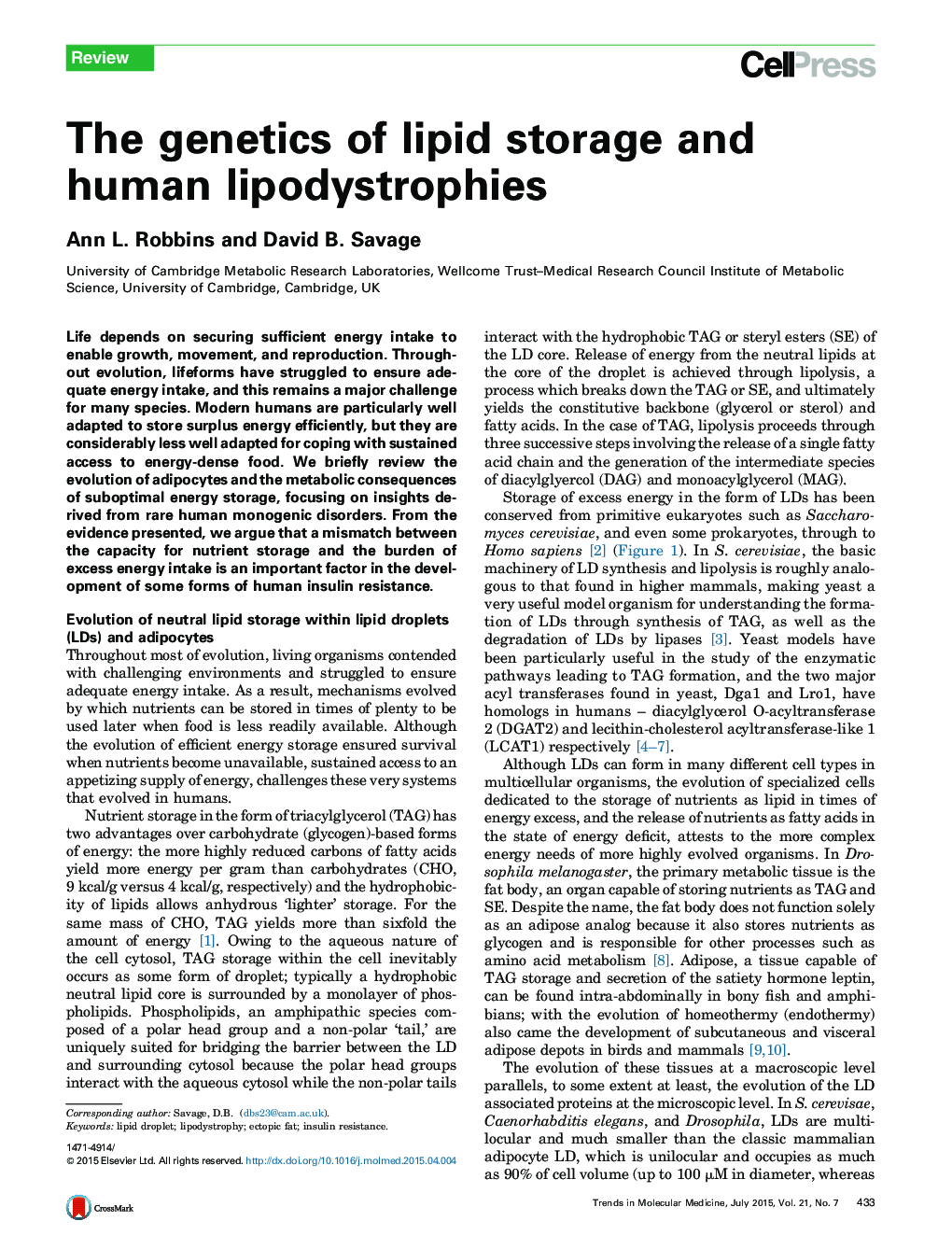| Article ID | Journal | Published Year | Pages | File Type |
|---|---|---|---|---|
| 2838408 | Trends in Molecular Medicine | 2015 | 6 Pages |
•In vertebrates, adipocytes store surplus energy within a large unilocular lipid droplet.•Lipid accumulation in non-adipose tissue is seen when adipose tissue is impaired.•Insulin resistance is strongly associated with ectopic lipid accumulation.•Matching energy intake with adipose capacity alleviates this metabolic stress.
Life depends on securing sufficient energy intake to enable growth, movement, and reproduction. Throughout evolution, lifeforms have struggled to ensure adequate energy intake, and this remains a major challenge for many species. Modern humans are particularly well adapted to store surplus energy efficiently, but they are considerably less well adapted for coping with sustained access to energy-dense food. We briefly review the evolution of adipocytes and the metabolic consequences of suboptimal energy storage, focusing on insights derived from rare human monogenic disorders. From the evidence presented, we argue that a mismatch between the capacity for nutrient storage and the burden of excess energy intake is an important factor in the development of some forms of human insulin resistance.
